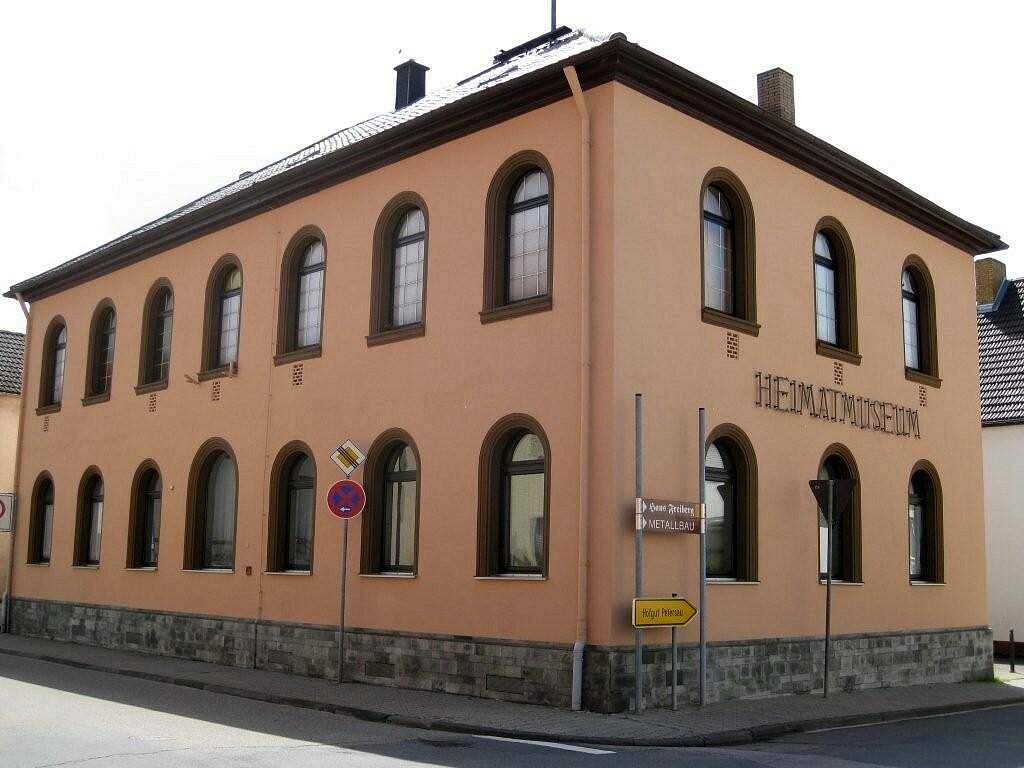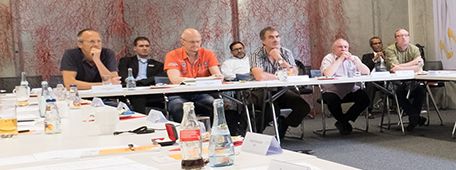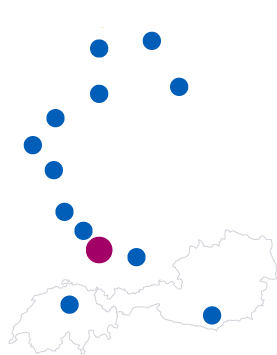Borough of Bobenheim-Roxheim
Small local government, big digitization project
Challenge
Although its administration is fairly small, one borough has had a big impact by consistently implementing forward-thinking goals: The Rhineland Palatinate borough of Bobenheim-Roxheim, one of the smaller local governments with around 11,000 inhabitants, had very clear ideas for continuing to modernize its administration and implement changes quickly. The community placed a major focus on innovative, consistent digital processes.
Digitizing financial management was a top priority in this complex project – although it required an initial conversion to a completely different software. The process used in the past was outdated, and there were no plans for an update soon. However, many requirements for a new product had already been formulated: It should cover all financial areas, have a modern interface, offer different evaluations and application options, and above all should cover the provisions of Sec. 2b VAT Act (UStG).
Solution
After an intensive selection phase, the borough selected the fully integrated financial accounting from Infoma newsystem, supplemented by Central Address Management (ZAV), Loan management and a Cash desk. At the same time, the municipality, which is not part of any association, commissioned the electronic invoice workflow and eInvoice import, as well as all other digitization components such as the electronic contract file and Infoma ePortal invoicing for decentralized recording and integrated processing of single invoices and assessments, to be perfectly prepared for consistent, efficient processes. The Module Budget Advanced and contract management were also added over the course of the project.
Finance Officer Claudia Kreitmair feels her administration is on a good path towards the digital future with this overall package – although they will still need to overcome the dissolution of entrenched structures as their biggest challenge: “In this case, digitization offers the option of placing processes under the microscope and optimizing them. Our goal in financial accounting is to accelerate processes with appropriate security mechanisms, thereby gaining time for other tasks.”
She intends to achieve this with the performance features offered by the Infoma newsystem integrated complete solution. In addition to paperless processing of incoming and outgoing invoices using an invoice workflow, the implementation agenda also included automating account statement booking and address reconciliation, as well as prompt payment of incoming invoices. In addition, annual deliveries of tax assessments will be omitted, since addresses are being updated by the ZAV module. And with the fee and cash box, manual statement bookings by the cash department in Financial Accounting are now a thing of the past. This also reduces the work required for the IT department: Integrating the fee and cash box and loan management into the financial software means there are two less programs to update and manage. Because of this, Claudia Kreitmair expects to see “savings on paper, mailing costs and processing time, as well as a freeing up of employee resources” thanks to the project.
The ePortal and contract management modules will be used to implement the provisions of Sec. 2b of the VAT Act. “To ensure error-free implementation, it is recommended to introduce Tax Compliance, essentially taking structural measures to eliminate sources of error” explains Claudia Kreitmair. “Within this framework, we must ensure that VAT can be processed correctly in the financial program.” This means, for instance, the automatic assignment of a serial invoice number to outgoing invoices, listing the tax number on invoices, indicating the service date and automatically booking earnings with VAT, if it needs to be charged. In addition, all contracts must be checked to see if a VAT obligation applies. In Bobenheim-Roxheim, this is done as part of contract capturing.
In March of 2018, the community on the old course of the Rhine river started an ambitious digitization project to announce the go live of the accounting workflow and conversion to new financial accounting from Axians Infoma, including use of the fee and cash box, by 1/1/2019. Claudia Kreitmair and Jens Glaser indicate two people as being primarily responsible internally for this result. This is also a situation that can often pose a challenge for many small local governments, Bobenheim-Roxheim included: handling a digital transformation without adding personnel. The two-person project team in Bobenheim-Roxheim had to deal with many added duties on top of their normal everyday work, including transitioning the general ledger accounts and asset accounting via Excel to the new system, processing the entire chart of accounts and adopting 2017 invoice results into 2019 budget planning. “In some cases, we underestimated the amount of work we would face” remembers the project manager. She recommends that other local governments that want to take on similar projects “extend the project time frame somewhat and choose highly motivated project employees who are ready to take new steps and aren’t afraid to do additional work if necessary.”
Benefits
Although they have not yet reached all of their goals, the administration feels the overall experience has been positive. Except for a few exceptions, feedback from the 45 internal users is good. Claudia Kreitmair considers faster processing of payment transactions using the electronic file accounting workflow, and faster statement processing thanks to automatic account statement booking to be particularly advantageous. However, the comprehensive and flexible analytic options – including budget information, evaluation by cost center groups, evaluation of changes of ownership in the property tax area, flexible settings for explorers, storage options for different search variants, etc. – have also proven highly beneficial.
“We are certainly satisfied with what we have achieved so far, particularly with the fact that we have successfully implemented a large number of modules to reach our goals at the same time, or in relatively fast succession, even as a small local government” concludes the finance officer.
The municipality intends to address both digitization of budget planning and advising, as well as integration of enforcement into the financial accounting solution in 2020. In the medium term, they also plan to handle facility management through Infoma newsystem.
Bobenheim-Roxheim’s mission when launching this complex digitization process was to establish itself as innovative and forward-thinking, even as a small local government. Currently, their broad-minded commitment to modernizing and digitizing their financial management is being rewarded by being named a finalist for the 2019 Axians Infoma Innovation Prize.

Copyright: Gemeinde Bobenheim-Roxheim
Key data
Product
State Rhineland-Palatinate
Number of inhabitants
10.785


























